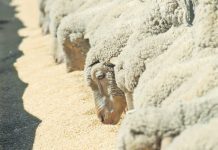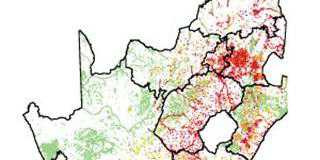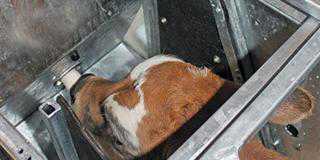You can gauge how healthy a farm environment is by looking at its frog population, says herpetologist Jerry Theron. And the more frogs there are, the better, he adds.“Frogs have a biphasic life cycle, meaning they live in both water and on land. Their skin is semi-permeable and can absorb pollution from the air and water,” he explains. So, when a dam becomes polluted frogs will die. “Invariably, whatever has harmed the frogs can harm other animals as well, so farmers can then take measures to make the water safer for other animals,” says Jerry. Frogs, then, are good biological indicators of the health of an ecosystem, and a decline in a frog population is especially worrying.
Protect frogs from licks and herbicides
Jerry tells how, while working as the manager of the Blyde River Canyon Nature Reserve, he came across a group of dead frogs one morning. He investigated, and realised the previous day’s rain had run over the licks he’d put down for cattle and into the nearby river, killing the frogs."These are deadly to frogs,” says Jerry. “Should water run off licks and into a pond or a stream, you could lose all the amphibians that come into contact with that water.” He urges farmers not to put licks near waterholes or ditches that could fill up with water after rain. He also advises that licks be put below a hill and not on the slope of drainage lines.
Male to female
It was also recently discovered that atrazine, a popular herbicide used here and abroad, has been responsible for turning male frogs into females, effectively halting the breeding process. The chemical, known to alter hormones, is now regarded as the main cause behind declining global frog populations. The herbicide often ends up in dams and ponds around a farm, and is absorbed by frogs’ thin skins. Male frogs develop an excess of oestrogen and so become female.There’s an alarming frog population decline due to pollution and pesticides as well as habitat loss and global warming, says Jerry. If frogs are to fulfil their function as bio-indicators, farmers should be careful of what ends up in their water, or they could lose an effective early-warning system.
Contact Jerry Theron on 073 470 4330. |fw













